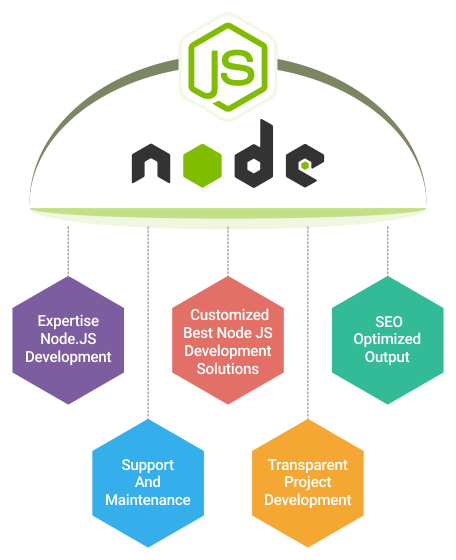Buzz Haven: Your Source for Trending Insights
Stay updated with the latest buzz in news, trends, and lifestyle.
Node.js: Where JavaScript Takes Over the Server Room
Discover how Node.js transforms JavaScript into a powerful server-side tool, revolutionizing web development like never before!
Understanding Node.js: The Backbone of Modern Web Development
Node.js has emerged as a powerful platform for building scalable and high-performance web applications. It is built on the V8 JavaScript engine and allows developers to execute JavaScript code server-side, which means you can write both the client-side and server-side code using the same language. This consistency streamlines the development process and enhances productivity. Additionally, Node.js utilizes an asynchronous, event-driven architecture, making it particularly well-suited for I/O-heavy tasks. This results in applications that can handle multiple concurrent requests efficiently, which is crucial for modern web applications that demand real-time data processing.
One of the defining features of Node.js is its vibrant ecosystem, powered by the Node Package Manager (NPM). This rich collection of libraries and tools enables developers to quickly integrate functionalities, reducing the need to build everything from scratch. Furthermore, the non-blocking nature of Node.js encourages innovative solutions to common web development challenges, allowing for better scaling as user demands grow. By embracing Node.js, developers not only gain access to a robust platform but also become part of a large community dedicated to pushing the boundaries of what is possible in web development.

10 Reasons Why Node.js is the Future of Server-Side Programming
Node.js has rapidly gained popularity among developers, emerging as a top choice for server-side programming due to its event-driven architecture and non-blocking I/O model. This allows for a more efficient and scalable approach to building web applications. Scalability is crucial in today's fast-paced digital landscape, where applications can experience sudden spikes in traffic. With Node.js, developers can create applications that handle a large number of simultaneous connections without compromising performance.
Another significant reason why Node.js is deemed the future of server-side programming is its rich ecosystem supported by npm (Node Package Manager), which provides access to a vast range of libraries and frameworks. This extensive package repository allows developers to implement features and functionalities quickly, reducing development time and costs. Moreover, the use of a single programming language—JavaScript—both on the client and server sides streamlines the development process, making it easier for teams to collaborate and maintain codebases.
Is Node.js Right for Your Project? Key Considerations to Keep in Mind
When considering whether Node.js is the right choice for your project, it’s essential to evaluate the specific requirements and goals of your development. Node.js excels in handling asynchronous operations and is particularly well-suited for applications that require real-time data processing, such as chat applications or collaborative tools. Its event-driven architecture allows developers to manage multiple connections simultaneously without blocking the process, which can lead to increased performance. Additionally, if your team is already skilled in JavaScript, choosing Node.js can streamline development, allowing for a unified language across both client and server sides.
Another key consideration is the scalability of your application. Node.js is designed for scalability, making it an ideal option for projects that anticipate rapid growth or fluctuating traffic volumes. The ability to easily implement microservices architectures means that you can build and manage your application in smaller, more manageable components, improving both maintainability and deployment efficiency. However, it's important to recognize that Node.js might not be the best fit for CPU-intensive tasks due to its single-threaded nature. Therefore, evaluating the type of workload your application will handle is crucial to determine if Node.js aligns with your project’s needs.